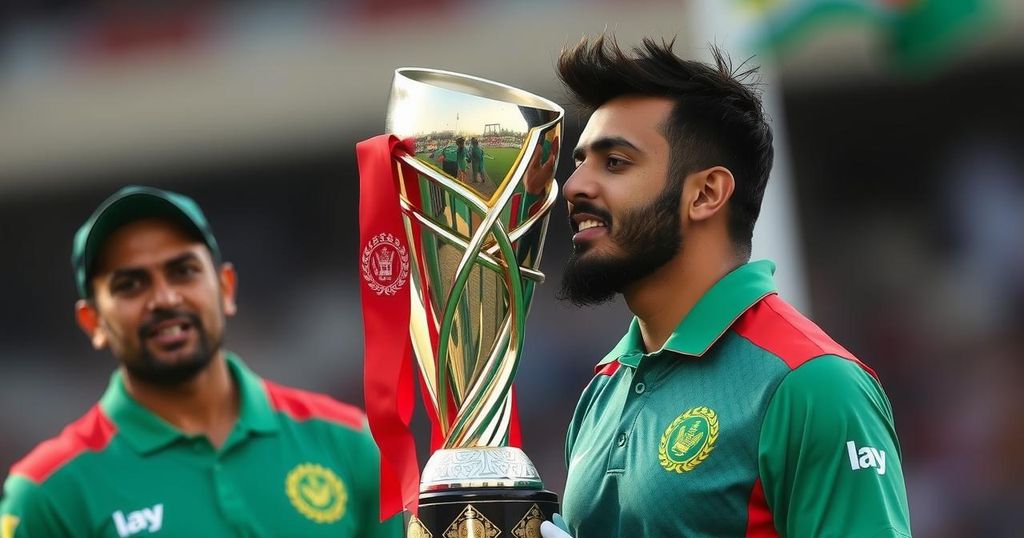South Africa’s sports minister supports calls to boycott the Champions Trophy match against Afghanistan in response to the Taliban’s crackdown on women’s rights. He criticized the ICC for not enforcing its own rules and emphasized the damaging message of competing against a nation with such a regime. The push for a unified boycott continues to grow among various international representatives and cricketing authorities.
South Africa’s Sports Minister, Zizi Kodwa, has publicly endorsed calls for a boycott of the upcoming Champions Trophy match against Afghanistan, scheduled for February 21, 2024, in Karachi. His statement underlines criticism towards the International Cricket Council (ICC) for failing to enforce its own governance on matters concerning human rights and the empowerment of women. The minister emphasized that participation in such matches could convey a damaging message, especially given the current climate under the Taliban, which has severely restricted women’s rights since their resurgence in power in August 2021.
Kodwa articulated, “Cricket South Africa, the federations of other countries and the ICC will have to think carefully about the message the sport of cricket wishes to send the world, and especially the women in sports.” He added that if it were up to him, South Africa would not play against Afghanistan, citing a personal connection to the struggles against apartheid and the importance of equity in sports. With over 160 British politicians advocating for a boycott of another match against Afghanistan, the sentiments for a unified stance continue to gain momentum.
Cricket Australia has previously postponed engagements with Afghanistan, citing deteriorating human rights conditions, although they still played at World Cup events. ECB Chief Executive, Richard Gould, has noted the necessity for a unified response from cricketing nations regarding Afghanistan’s involvement in future tournaments.
The current discourse surrounding the potential boycott of the Champions Trophy match against Afghanistan emerges in the context of the Taliban’s repressive policies towards women, which have escalated since August 2021. As various countries, including England and Australia, express their apprehensions regarding human rights violations, the cricketing community grapples with the implications of competing against a nation governed by such a regime. This situation poses ethical dilemmas for sports authorities and politicians alike, provoking discussions on the responsibilities of international sports organizations in the face of global human rights crises.
In conclusion, the potential boycott of South Africa’s match against Afghanistan in the Champions Trophy marks a significant intersection of sports and human rights advocacy. The call from sports minister Zizi Kodwa echoes a broader sentiment among several nations and political leaders regarding the implications of competing against a regime that undermines women’s rights. As these discussions unfold, they will likely shape the future landscape of international sports diplomacy and the moral responsibilities of sporting bodies.
Original Source: www.thenews.com.pk






